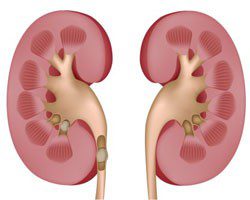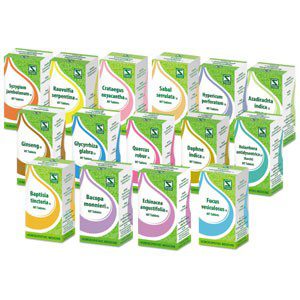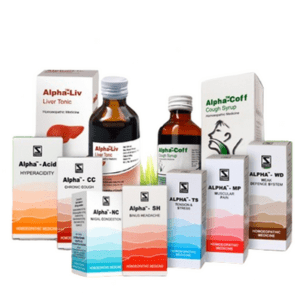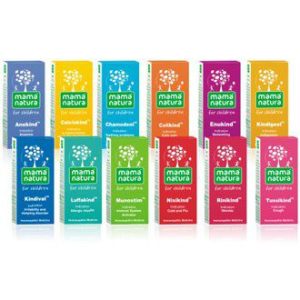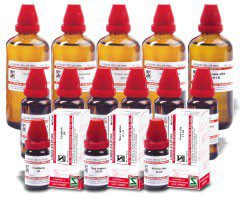Doctors Zone
Journal (JEBH)
Alpha™- Liv Drops
Alpha – Liv Drops Due to high demand from the market, for a formulation in drops for the liver, apart from the syrup already available in the market, Schwabe India developed this product. Introduction The liver plays a key role in metabolism. It has anabolic and catabolic, exocrine and endocrine functions. The liver is a blood reservoir, filter and store of different substances (e.g. glycogen, vitamins). It is the site of serum protein (e.g. albumin, prothrombin, fibrinogen) and enzyme synthesis. Metabolic processes (e.g. bilirubin, hormone, carbohydrate and lipid turnover) and the removal of toxic products are important liver functions. 1 Hepatotoxins (e.g. alcohol, tetracycline, acetaminophen, fungal toxins, and anabolic steroids) can cause specific damage to liver cells. Toxic hepatitis may be clinically silent or severe enough to lead to the rapid development of hepatic failure. Clinical features include hepatomegaly, enzyme abnormalities, fever, abdominal pain, anorexia, nausea, vomiting and weight loss. In patients with underlying cirrhosis, manifestations of portal hypertension may predominate. Aversion to fatty food, abdominal discomfort, nausea and vomiting after meals may be symptoms of 2 cholelithiasis. Jaundice results from accumulation of bilirubin. It has non-hepatic as well as hepatic causes. Hyperbilirubinaemia may be due to abnormalities in the 3 formation, transport, metabolism or excretion of bilirubin. TM Alpha -Liv Drops aids recovery and normalisation of liver functions. Severe liver disease needs specialised treatment. Indications: Slow liver functions, fatty liver, and for supportive treatment of hepatocellular jaundice and toxic liver damage.

Research news – Schwabe News Volume 3 | Issue 2 | April 2012
Schwabe News Volume 3 | Issue 2 | April 2012
Research news
Assessment of homeopathic medicine Aconitum napellus in the treatment of anxiety in an animal model
Aconitum napellus is a very frequently used homoeopathic medicine for many complaints associated with anxiety or fear. This study was conducted to scientifically assess the action of this drug in the treatment of generalized anxiety in an experimental model using rats.
In this study, 48 adult (two to three months old) male Wistar rats (Rattus rattus) were randomly divided in six groups (n= 8/treatment) and given the following treatments by gastric tube along 10 days: 1) control (diazepam 1 mg/kg/day); 2) negative control (0.15 mL saline solution/day); 3) ACH6 (0.15 mL Acon (6cH/day); 4) ACH12 (0.15 mL Acon 12cH/day); 5) ACH30 (0.15 mL Acon 30cH/day); and 6) ALC30 (0.15 mL 30% cereal alcohol/day). Behavioral effects were blindly and randomly assessed in elevated plus maze (EPM) and open field test.
The results showed that the drug in dilutions 12CH and 30CH exhibited possible anxiolytic effects on the central nervous system (CNS) since they increased the number of entries in the EPM open arms (12CH and 30CH) and the permanence time in the EPM open arms (30CH only). In the open field test the these preparations did not show effects on the locomotor system of rats. The authors have concluded that the dilutions 12CH and 30CH of Aconitum napellus exhibit anxiolytic effects on the CNS in an animal experimental model.
Caution: It is considered toxic at 1x and 2x levels.
Reference: Gabriele Baptista Haine, Samarah Hamidi El Ghandour, Sâmia Ahmad El Ghandour, Andersom Ricardo Fréz, Assessment of homeopathic medicine Aconitum napellus in the treatment of anxiety in an animal model, International Journal of High Dilution Research, Vol 11, No 38 (2012)
Disclaimer
The information provided herein is not intended to be taken as a replacement for medical advice and should not be used during any medical emergency. A Registered Medical Practitioner should be consulted for diagnosis and treatment of any and all medical conditions. Links to other sites are provided for information only and they do not constitute endorsements of those other sites.
If you want to receive regular e-mail updates, you can directly subscribe now.
Recent Advancements in Basic Homeopathic Research – A Report on Two Significant Publication
In a study conducted at the Experimental Farm of the State University of Santa Catarina, Brazil, researchers investigated the impact of homeopathic treatments on piglets during the nursery phase. The study aimed to determine whether homeopathic agents could reduce fighting behavior, improve growth performance, and affect hematological, metabolic, and oxidative variables. The study included 108 weaned piglets divided into four groups: a negative control group receiving only the basal diet, and three groups receiving different homeopathic treatments at varying dosages.
Journal of Evidence Based Homeopathy Volume: 1, Issue: 1, January - June 2023
Comprehensive articles

Agrohomeopathy – A Review
Short cases

Unmasking the Intricacies: A Pyogenic Abscess Case Report

Lichen Simplex: A Singular Case Study

Ranula Unveiled: A Case Report and Management Approach

Lichen Simplex: A Singular Case Study

A Puzzling Presentation: A Case Report of Jaundice
Recent provings and updated materia medica

Acidum Formicum

Mygale

Thea Chinensis
Materia medica on phytohomeopathy

Chrysarobinum

Sanguinarinum nitricum

Thiosinaminum
Mother tincture

Asparagus Officinalis

Ginkgo Biloba

Rosmarinus Officinalis
Product watch

Alpha™- Liv Drops

Good Morning™ Constipation Drops

Zauber™ Hair Drops
Research News











